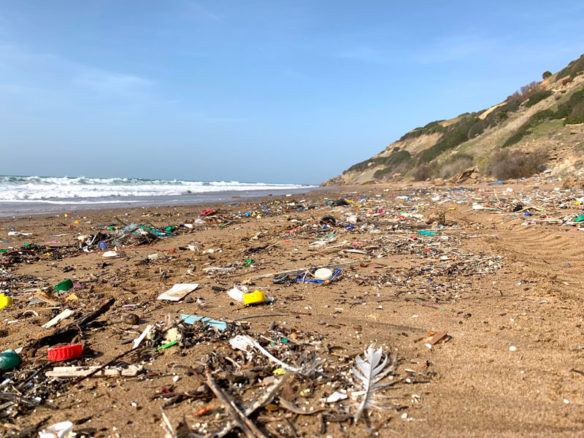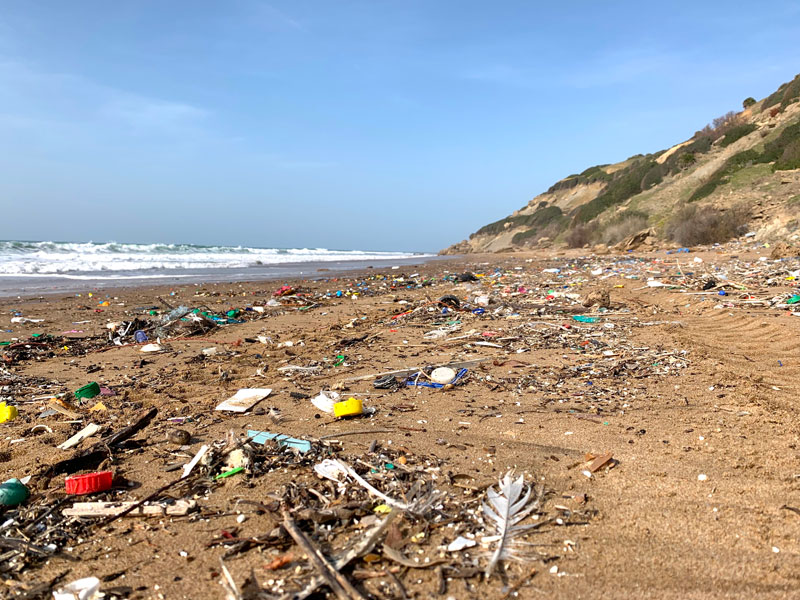
“The unprecedented plastic waste tide plaguing our oceans and shores, can become as limited as our chosen relationship with plastics, which involves a dramatic behavioral change on our part…”
Captions and Photo: © SAF — Coastal Care
Excerpts;
Since the year 2000, we’ve used more plastic than in all the years before.
On average, we each use 53 kilograms of plastic a year and generate a collective total of more than 300 million tonnes of plastic waste.
By 2030, this is predicted to double, with the brunt of the impacts expected to hit our oceans.
These are just some of the figures to come from WWF’s global plastic report, Solving Plastic Through Accountability, released today…
Read Full Article; ABC News Australia (03-04-2019)
Solving Plastic Pollution Through accountability, By WWF (03-04-2019)
Microplastic pollution in oceans is far worse than feared, say scientists; Guardian UK (03-12-2018)
Microplastics pollute most remote and uncharted areas of the ocean; Guardian UK (02-12-2018)
First data ever gathered from extremely remote area of the South Indian Ocean has a surprisingly high volume of plastic particles, say scientists. Currently scientists can only account for 1% of the plastic they think is in the ocean…
The Ocean Is Contaminated by Trillions More Pieces of Plastic Than Thought, IOP Science (12-08-2015)
This new study suggests there are 15 to 51 trillion micro plastic particles (those less than 200 millimeters in size) in the world’s oceans, weighing between 93 and 236,000 metric tons. This is about seven times more than scientists had previously estimated…
More than 8. 3 billion tons of plastics made: Most has now been discarded; Science Daily (07-19-2017)
Humans have created 8.3 billion metric tons of plastics since large-scale production of the synthetic materials began in the early 1950s, and most of it now resides in landfills or the natural environment, according to a study.
Video captures moment plastic enters food chain, BBC News (03-11-2017)
A scientist has filmed the moment plastic microfibre is ingested by plankton, illustrating how the material is affecting life beneath the waves. The footage shows one way that plastic waste could be entering the marine and global food chain…
Plastic Pollution: When The Mermaids Cry, The Great Plastic Tide, Coastal Care
Washed out on our coasts in obvious and clearly visible form, the plastic pollution spectacle blatantly unveiling on our beaches is only the prelude of the greater story that unfolded further away in the world’s oceans, yet mostly originating from where we stand: the land…









